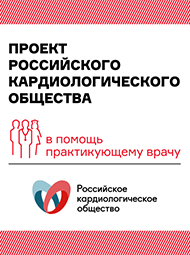Aspirin often added to warfarin in AF without CAD, despite bleeding risk
Dallas, TX - More than a third of patients with atrial fibrillation (AF) who were on oral anticoagulation in a large cohort study were also taking aspirin [1]. Although most on aspirin also had some sort of vascular disease, the remaining 39% had no history of PCI, MI, cerebrovascular events, or other clinical cardiovascular disease that might justify aspirin use under the guidelines.
In the evidence base and in the guidelines, it's a gray area whether patients with both AF and CV disease should get aspirin along with their oral anticoagulation, senior author Dr Eric D Peterson (Duke Clinical Research Institute, Durham, NC) explained for heartwire. Oral anticoagulation in the current analysis essentially meant warfarin.
"We anticipated that some of them would get [aspirin] and some would not, and that's what we saw" in the analysis of >7000 patients with AF receiving oral anticoagulation who were participants in the Outcomes Registry for Better Informed Treatment of Atrial Fibrillation (ORBIT-AF). But there was no apparent pattern to help explain the variation.
Also, about 40% of the patients with AF and no CV disease were also taking aspirin on top of oral anticoagulation, despite "no indication, that we know of, for aspirin," according to Peterson. "We're still struggling a bit to understand why so many were on aspirin.
"In general, if I see a patient in my clinic who has only atrial fibrillation and no other risk factors, they should not be on aspirin," Peterson said. "Because I know for sure their risk of bleeding is going to be one and a half times what it was before."
Even among those with vascular disease, he said, no consistent pattern emerged that seemed to explain variation in aspirin use. It apparently wasn't based on differences in bleeding risk, as distribution of ATRIA bleeding-risk scores for those on and not on aspirin weren't significantly different; for example, 17% in both groups had scores indicating the highest bleeding risk.
The study was published online July 16, 2013 in Circulation, with first author Dr Benjamin A Steinberg (Duke University Medical Center, Durham, NC).
In the analysis looking at bleeding, hospitalization, ischemic events, and mortality at six months in 7347 AF patients receiving oral anticoagulation at 174 sites in the US, 35% were also taking aspirin. The daily dosage was 81 mg in 85% of patients and 325 mg in nearly all the rest.
Aspirin use had no apparent effect on ischemic events (although end points were few) and gastrointestinal bleeding, but the opposite was true for major bleeds overall and hospitalization for bleeding.
Peterson said the risks of adding aspirin to warfarin or, potentially, the newer generation of oral anticoagulants, are widely underestimated. He sees several possible explanations for rampant aspirin overuse.
Many individuals are taking aspirin for primary prevention, a once-justifiable practice that has since been largely discredited, yet many are still on it, he observed. And "in my own clinical practice, I watch patients who come into the hospital to rule out chest pain get put on aspirin," he said. Or "a lot of patients who come in with atrial fibrillation have some degree of cardiac symptoms, so they get started on aspirin; subsequently, a stress test or other [test] rules out vascular disease, but aspirin remains in their formulary—nothing ever gets dropped."
Peterson said the risks of combining aspirin with oral anticoagulation are likely to be similar whether it's warfarin or the newer oral agents apixaban (Eliquis, Pfizer/Bristol-Myers Squibb), dabigatran (Pradaxa, Boehringer Ingelheim), and rivaroxaban (Xarelto, Bayer/Johnson & Johnson).
In an accompanying editorial [2], Drs Carlo Patrono and Felicita Andreotti (Istituto di Farmacologia, Università Cattolica del S Cuore, Rome, Italy) note that ORBIT-AF highlights "the need for an adequately sized randomized trial comparing oral anticoagulation alone against oral anticoagulation and low-dose aspirin in patients with atherothrombotic vascular disease and nonvalvular AF at moderate to high thromboembolic risk." The question wasn't settled either by the WOEST or WARIS 2 trials, they write.
The Cardiovascular Outcomes for People using Anticoagulation Strategies (COMPASS) trial, they note, "is currently testing the efficacy and safety of anticoagulation alone with rivaroxaban against aspirin monotherapy or the combination of aspirin and low-dose anticoagulation in about 20 000 patients with coronary or peripheral artery disease followed for approximately five years, reflecting the continued interest and need for very large trials in the area of combined antiplatelet and anticoagulant therapy."
Source: www.theheart.org






